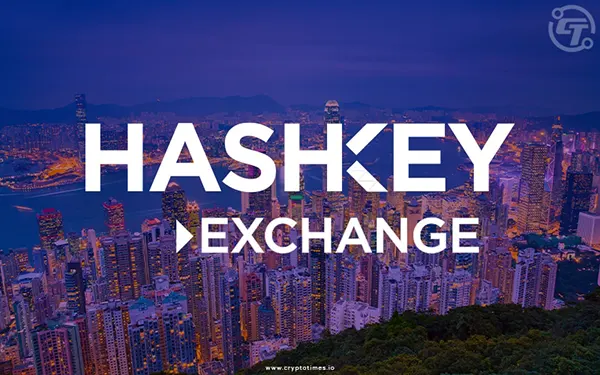HashKey Exchange: A Regulated Hong Kong-Based Crypto Exchange for Institutional Traders

As the global cryptocurrency market matures, institutional investors are seeking regulated, transparent and secure environments for trading digital assets. HashKey Exchange, headquartered in Hong Kong and fully licensed by the Securities and Futures Commission (SFC), is emerging as one of the most promising venues in Asia for professional traders. This article explores HashKey’s regulatory background, its unique features, and its growing relevance for institutional clients in 2025.
Regulatory Clarity and SFC Licensing
One of the most critical factors that distinguish HashKey Exchange from many other trading venues is its strong regulatory foundation. HashKey is licensed under Type 1 and Type 7 licenses by the SFC of Hong Kong, allowing it to operate a virtual asset trading exchange and provide automated trading services. This places it within one of the strictest and most transparent legal frameworks for digital asset trading in the region.
Unlike unregulated entities, HashKey must comply with stringent anti-money laundering (AML) and know-your-customer (KYC) obligations. These procedures enhance client protection and position HashKey as a trusted intermediary for institutional capital. Since 2023, Hong Kong has taken steps to reposition itself as a digital asset hub, and HashKey was among the first exchanges to receive approval under the new regime.
By mid-2025, the SFC’s regulatory oversight remains a cornerstone of Hong Kong’s crypto policy. Institutional investors now prefer exchanges that offer legal clarity and operational accountability—factors HashKey Exchange has prioritised since inception.
Why Regulatory Oversight Matters to Institutions
Institutional clients face strict internal compliance requirements. Engaging with unregulated exchanges poses risks such as potential legal issues, data breaches, or asset loss. HashKey’s adherence to SFC rules mitigates these risks, allowing banks, hedge funds, and family offices to participate in crypto markets safely.
Moreover, regulated exchanges tend to offer more transparent pricing models and audited custody solutions. For institutions that manage large sums and face scrutiny from their boards and stakeholders, the ability to show regulatory compliance is crucial. HashKey’s alignment with Hong Kong’s evolving legislation gives it a notable competitive advantage.
Finally, SFC regulation opens the door to wider collaboration with traditional financial institutions. In 2025, these synergies are vital as tokenisation and digital assets enter mainstream financial products and services.
Features Tailored to Institutional Traders
HashKey’s infrastructure is purpose-built for institutional trading. Unlike retail-focused exchanges, its system architecture supports high-frequency strategies, robust APIs, and deep liquidity pools. This allows professional traders to execute large-volume transactions with minimal slippage and latency.
In addition to technical performance, HashKey offers bank-grade custody solutions via HashKey Custody Services. Assets are held in segregated accounts, and 98% of funds are stored in cold wallets with multi-signature protection. Insurance coverage is in place to safeguard client holdings from theft or cyberattacks.
Another standout feature is fiat on-ramp support. HashKey provides HKD and USD rails through trusted banking partnerships, allowing institutional clients to move funds in and out of the exchange securely. This is a significant benefit, considering the challenges crypto exchanges often face with fiat integration.
Product Range and Market Depth
As of 2025, HashKey supports a curated list of digital assets, including BTC, ETH, and other tokens that meet its risk and compliance criteria. The limited selection reflects its institutional-first philosophy—prioritising quality over quantity.
The exchange also offers OTC (over-the-counter) services for large block trades, as well as structured products tailored to sophisticated traders. These include yield-generating products and derivatives that are increasingly in demand among Asian family offices and hedge funds.
Market makers and liquidity providers have joined HashKey in growing numbers due to its regulatory profile and institutional clientele. This has resulted in better spreads and more stable market depth across trading pairs.

Strategic Role of HashKey in Asia-Pacific
HashKey Exchange plays a strategic role in Hong Kong’s ambition to lead Asia’s digital asset ecosystem. The city’s regulatory clarity, strong financial infrastructure, and proximity to mainland China give it an edge over competitors like Singapore and South Korea. HashKey is positioned as a linchpin in this transformation.
In 2024, HashKey expanded its presence by launching HashKey Global for non-Hong Kong users, offering additional flexibility while maintaining high compliance standards. This dual-market strategy enables it to serve both institutional clients within Hong Kong and those in international markets through legally distinct entities.
Furthermore, HashKey’s parent company operates across asset management, fintech R&D, and blockchain consultancy. This integrated ecosystem adds credibility and operational depth to its exchange business, giving it broader value compared to standalone trading venues.
Future Outlook and Industry Impact
Looking ahead, HashKey Exchange is poised to benefit from rising institutional adoption of digital assets in the Asia-Pacific region. Its strategy of focusing on transparency, security, and regulatory alignment resonates with governments and enterprises exploring blockchain-based finance.
Hong Kong’s plans to issue tokenised green bonds and CBDCs may also benefit compliant exchanges like HashKey, which can serve as authorised venues for future token issuance and secondary market trading. These developments are likely to create positive feedback loops between regulation, innovation, and institutional capital flows.
As the industry evolves, HashKey’s case could become a model for balancing growth with compliance—offering insights for regulators and market participants worldwide.
